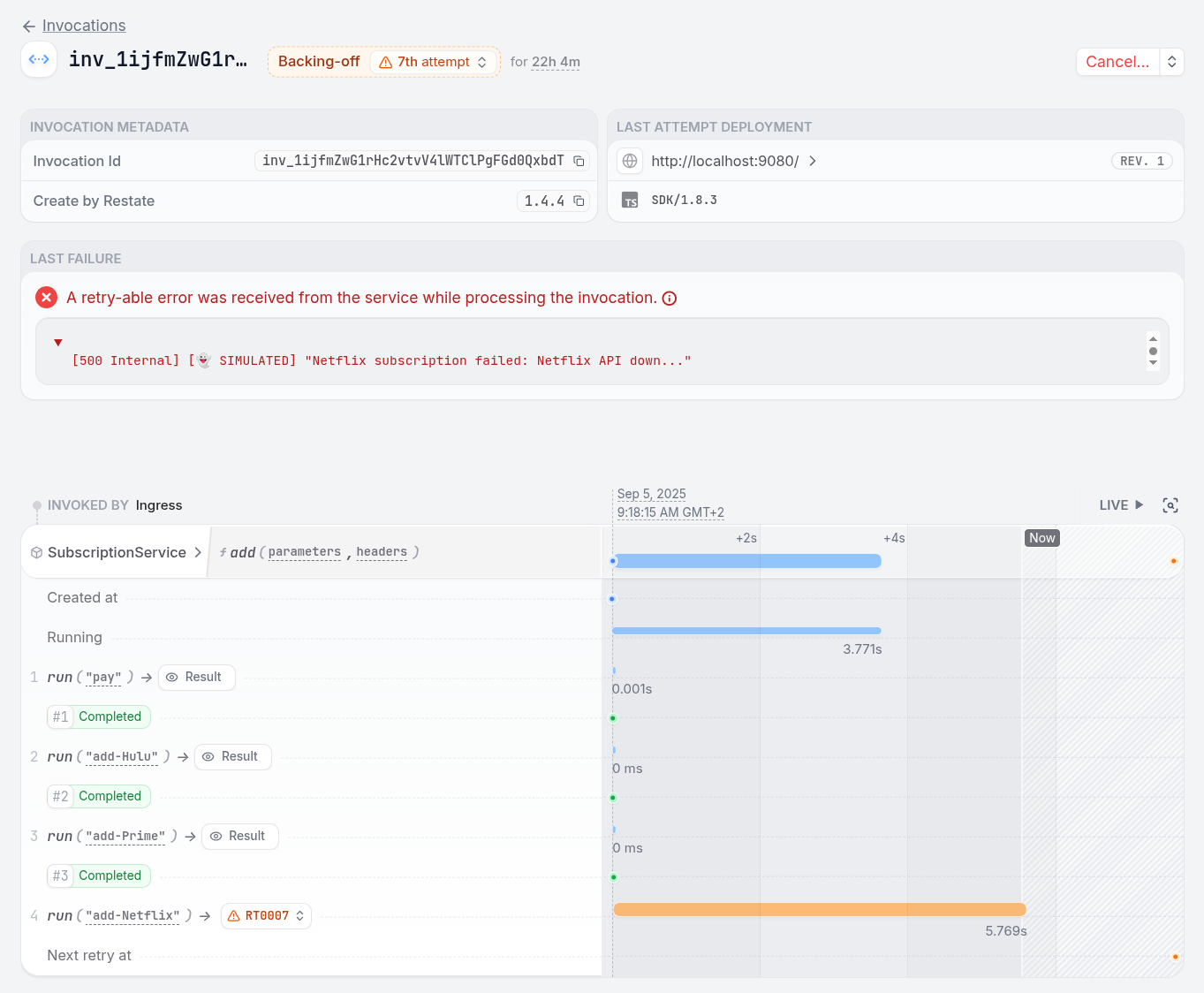HTTP invocations
To call a function over HTTP, send a request to the Restate Server, specifying the service and the function you want to invoke. For example, to call theprocessPayment function of the PaymentService:
localhost:8080.
To call Virtual Objects or Workflows, you need to specify the object key or workflow ID in the URL.
For example, to call updateBalance of the UserAccount object with key user123:
Typed client invocations
Use typed clients from external applications to invoke Restate handlers:Kafka invocations
You can connect your Restate handlers to Kafka topics, to let Restate invoke them for each message. Consult the Kafka Quickstart to get started.Idempotency
Add an idempotency key to your request header to let Restate deduplicate retries:Inspecting invocations
Use the Restate UI to monitor and troubleshoot invocations: